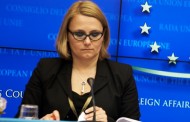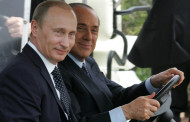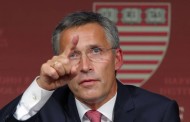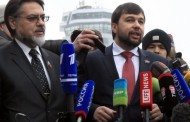Receiving 20.8% of the votes in the May 2015 presidential elections made Paweł Kukiz the most famous and promising politician in Poland. These results placed him third after then president Bronisław Komorowski and the current president, Andrzej Duda. Kukiz’s innovative ideas regarding radical changes to the electoral system received undivided support from the non-parliamentary opposition as well as the younger generation of large parties already represented in the Sejm whose path to the top is blocked by the current voting system.
The proposal to conduct a referendum and establish a system of single-seat constituencies turned into a 2015 presidential campaign “hit”. Before that, the ruling Civic Platform (PO) party and main oppositional Law and Justice (PiS) party had utterly resisted any changes. The leading parties only reacted after the first round because they were forced to when the success of Kukiz with his proposals was clear for all to see. From this moment on, a struggle for the initiative around the idea of a referendum ensued.
Plus or minus referendum
“One must draw some conclusions from yesterday’s vote… I interpret the support for Paweł Kukiz as voters expecting a referendum. Therefore, I find it necessary to hold a national referendum on the issues of single-seat constituencies, changes to the electoral system and ending the practice of financing parties from the budget,” then president Bronisław Komorowski announced on 11 May (cited from TVN24).
A referendum was scheduled for 6 September, after preliminary approval of the project by the senate. President Komorowski explained this by saying a referendum should not take place during the holiday season. However, Paweł Kukiz claimed this was too soon and that, first, a thorough public discussion should take place about the issues put to the referendum (WP.pl).
The new President of Poland Andrzej Duda, representing PiS, announced that he respected his predecessor’s decision and would not cancel the referendum. However, on 20 August in a special video address, he announced his proposal to the senate that a referendum on lowering the pension age, removing compulsory primary education for six-year-old children and protecting national forests be held on the same day as parliamentary elections – 25 October. Holding the referendum concurrently with elections to the Sejm and senate will cost far less than holding them on different days,” stated President Duda (cited from Onet.pl).
A reaction by Prime Minister Ewa Kopacz followed the next day. She proposed putting additional issues on the referendum: church financing, privileges for parliamentarians and trade unions, and the issue surrounding the duration of the state artificial insemination programme. It eventually got to the point that nearly all of the major issues which politicians raised during the election campaign were offered up for popular vote.
However, the senate’s approval is required to conduct a referendum in Poland, and it must support the decision in such a way that senators voting “for” outnumber those voting “against” or abstaining. 53 senators (predominantly from PO) voted against the organisation of a second referendum and 35 voted for it, including 30 from PiS. Two senators representing PO abstained. The Chief of the President’s Chancellery Małgorzata Sadurska considered the senate’s decision to be politically motivated. “President Andrzej Duda treated the decision of his predecessor with respect and did not cancel the 6 September referendum. The senators have not supported President Duda’s proposal. This is symbolic of ignoring the will of the Polish people,” stated Sadurska (cited from Dziennik.pl).
Despite the PiS and PO attempts at torpedoing it, on 6 September the Komorowski-initiated referendum was held all the same. Out of 30.6 million Poles with the right to vote, only 7.8% participated in the referendum, which renders it optional since at least 51% would have needed to cast a vote. The referendum cost 90 million złoty.
In response to the first question, “Do you support introducing single-seat electoral districts for elections to the Sejm of the Polish Republic?”, 78.75% of participants answered affirmatively. 17.37% answered in the affirmative to the second question, “Do you support maintaining the current method of financing political parties from the state budget?”. The third question, “Do you support interpreting tax law in favour of the taxpayer in disputed cases,” received a positive response from 94.51% of voters.
In fact, the Sejm approved a new version of the tax code on 10 July, and in it deciding disputes in favour of the payer was determined to be impossible. Later, on 5 August, Komorowski approved these amendments. Thus, after announcing the referendum, the president put a document into effect which directly contradicts one of the key issues being voted on in the very same referendum.
In the opinion of Polish politicians and experts, the referendum was a flop as expected. As Roman Giertych, former leader of the national democratic party League of Polish Families, commented to the publication Onet, the emotional explosion in society that gave Kukiz 20% was extremely short-lived [13]. “During meetings with my electorate, not once was the question raised on how to vote in the referendum,” said the politician.
Polish experts see the reasons for the referendum’s failure in the exceptionally low turnout. Professor Wojciech Łukovski is convinced the reason for this was that Poles did not perceive the referendum not as part of an effort to care for the state’s future but rather as an element typical to a political struggle (WP.pl). On a broadcast by the TV channel TVP-Info, expert Anna Materska-Sosnowska and Professor Radosław Markowski suggested the reason for the low response was in really that the questions were incorrectly formulated from the outset, providing voters with no alternatives.
In the opinion of Kukiz himself, the referendum failed because of a tacit alliance between the ruling and opposition parties, both equally uninterested in its implementation. Answering Onet’s question of whether or not the referendum was his defeat, Kukiz stated the following: “Defeat? The triumph of the partocracy …We had a stream of hate directed at the referendum for many months. It was used in the interests of party intrigues between the PiS and PO. And I was pulled into it also.”
The main consequence of the referendum has been a sharp decline in the ratings of the movement Kukiz ’15. The referendum and single-seat districts were the politician’s personal ideas and were associated primarily with him, not with Komorowski. Kukiz’s team hardly contributed to popularising the proposal, and so practically the whole electoral campaign boiled down to his rare meetings with voters.
Furthermore, as the referendum drew closer, both far right political forces and politicians (National Radical Camp and Marian Kowalski) and liberals, who went over to the side of Przemysław Wipler, started breaking away from Kukiz’s political platform. Kukiz’s influence on other leaders of the political force he led dropped sharply. Taking the defeat of the referendum as the defeat of Kukiz himself, other well-known politicians also left the party (Grzegorz Czarnecki and Janusz Sanocki).
Author: Dawid Hudziec







Recent Comments
champoiseau in: Daesh et les astuces de la stratégie russe en Syrie
Entièrement d'accord avec vous.Que la Vierge Marie protège la Russie e ...
Michel in: Daesh et les astuces de la stratégie russe en Syrie
Notre salut commun nous viendra de la Sainte Russie orthodoxe et tradi ...
Adam in: AdNovum: polemika z Friedmanem
George Friedman to przypadek psychiatryczny ...
Adam in: Poroszenko: w Donbasie nie ma wojny domowej
"niezależne państwo ukraińskie" - brzmi jak niezależne państwo chorwac ...
Adam in: Oświadczenie MBP w sprawie nielegalnej demonstracji w Doniecku
potraktować ich po banderowsku... ...